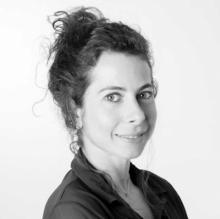Juliana Negreiros
What are your main responsibilities or activities in your current position?
My role as a Registered Psychologist involves comprehensive psychological assessment and treatment for children and youth (ages 2-19 years) with significant mental health concerns (e.g. anxiety, OCD, ODD/ADHD/disruptive behaviour, trauma, abuse, neglect) and potential comorbid learning/developmental difficulty. I also serve as a consultant for community-based partners, mental health clinicians, schools, and families. As a postdoctoral fellow at the BC Children's Hospital Provincial OCD Program, I participate in numerous aspects of research, which involve study design, implementation, analysis and interpretation, in addition to conference presentation and manuscript preparation.
How does your current work relate to your graduate degree?
The UBC School Psychology program prepares graduate students to become psychologists who work in schools, academia, research, community, and private practice settings, with the intent of increasing the educational, psychological, and psychiatric well-being of children and youth. During my graduate training, I acquired extensive academic and applied knowledge in child development, assessment, and intervention, and I worked in collaboration with families, schools, and community agencies to enhance and maintain positive intervention outcomes for children and youth. Throughout my graduate study, I strived to bridge academic requirements with my interests in research and clinical practice. The focus of my doctoral coursework and specialty placements was on evidence-based treatment of psychiatric disorders in pediatric populations, motivating me to further investigate specific factors associated with anxiety disorders in childhood. In particular, my rewarding clinical experience delivering Group-Based Family Cognitive-Behavioural Therapy to youth with OCD resulted in the development of my dissertation study and my postdoctoral fellowship. My current work requires that I apply the knowledge and experience I gained throughout my training to complex cases with the goal of best supporting a healthy and happy development of children and youth.
What do you like and what do you find challenging about your current position?
I enjoy being part of a research- and hospital-based program that gives families the opportunity to receive top notch support for pediatric OCD. Despite the challenges of conducting research studies, I am fascinated by the opportunity of translating research findings into clinical knowledge. I also appreciate being part of a larger team that includes psychiatrists, social workers, other psychologists, postdoctoral fellows and graduate students.
What motivated you to pursue graduate work at UBC?
I did not want to live outside Vancouver, and UBC offered a competitive School Psychology program.
What did you enjoy the most about your time as a graduate student at UBC?
I enjoyed having contact with the most recent research and knowledge in School Psychology. I also loved presenting at national and international conferences, publishing papers, and being in touch with experts in the field.
What key things did you do, or what attitudes or approaches did you have, that contributed to your success?
Throughout my training, I was actively engaged in a range of research projects, practicums, and work experiences. I also co-authored book chapters and manuscripts. I strived to maintain a high GPA and applied for scholarships and travel awards every year.
What is your best piece of advice for current graduate students preparing for their future careers?
I would suggest that current graduate students dedicate their coursework, research, practicum, and internship experiences to topics, populations, and types of interventions that they are most passionate about. Having such academic and applied background in a specific area will help them find their dream job.
Did you have any breaks in your education?
Yes, I took six months of maternity leave during my pre-doctoral internship year. I was lucky enough to have defended my dissertation at 34 weeks pregnant! Having a baby did help my career progression, as I became more sensitive to how I delivered my services to families in need.
How did you find out about/obtain your current position?
I conducted my dissertation study where I am doing my postdoctoral fellowship.
How are jobs normally posted and filled in your organization or industry?
I believe that you can find available positions at the UBC website.
